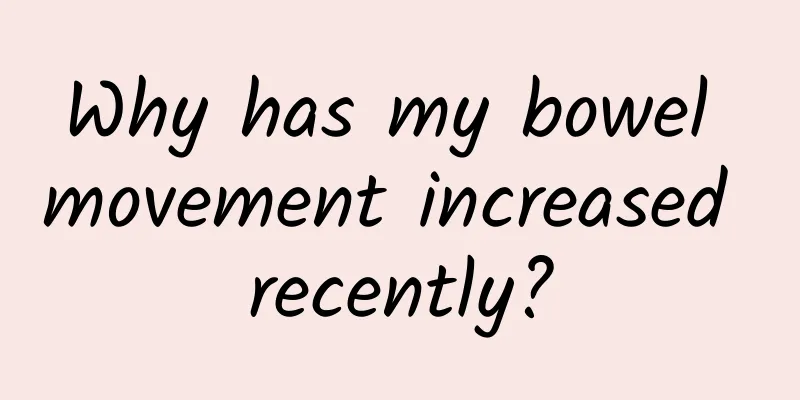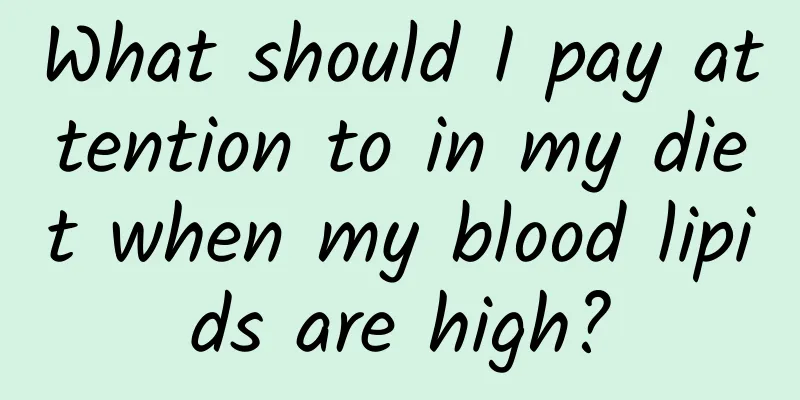Fast heart rate while eating

|
We all know that the speed of the human heart beats is related to the amount of exercise a person does in a day. When we do strenuous exercise, the heart must speed up so that we can effectively achieve aerobic respiration. If the heart is still slow, you may feel difficulty breathing. Some people think that eating is also a kind of exercise and will also affect the heart. So will the heart rate increase when eating? 1. What is the impact of eating on the heart? Why? When people eat, the working state of the heart changes. For example: when eating, the heart rate increases by 8-10%, the amount of blood pumped by the heart increases, and the diastolic blood pressure (low pressure) decreases, which lasts for about 30-120 minutes. This change appears to be unique to humans. To date, the reasons for the above changes caused by eating are still unclear. In the past, it was believed that they were the result of regulation by the central nervous system. However, studies have confirmed that the above changes in heart function still exist in heart transplant patients (the transplanted heart has no neural regulation) when eating. The latest view is that humoral factors (such as changes in blood sugar, insulin, glucagon-like peptide and ghrelin levels) during eating are the main cause of increased heart rate. 2. What effect does eating too fast have on heart rate? The extent to which eating affects the heart is related to the amount of food consumed. The larger the amount of food consumed, the more significant the impact. The direct consequence of eating too fast is overeating, because it takes a certain amount of time for the nerve center to produce the feeling of fullness. Therefore, when you eat too fast, your heart rate will increase more significantly and last longer due to eating too much. 3. How big of an impact does eating too fast have on your health? The changes in heart function during meals are usually not significant and generally recover within 2 hours after a meal, which has no effect on normal people. However, for people with underlying heart disease (such as coronary heart disease), if they eat too fast or too much, their heart rate, cardiac output and myocardial oxygen consumption will increase too much, and they may feel palpitations and discomfort. More importantly, long-term eating too fast and eating too much will increase the risk of obesity and diabetes, and the risk of cardiovascular disease will also increase. 4. Eating quickly increases your heart rate, what should you do? Whether you have cardiovascular disease or not, you should eat a healthy diet. For example: choose a balanced diet and do not eat too fast or too much. For symptoms such as palpitations caused by eating too fast, you can stop eating, sit down and rest, and observe the changes in symptoms. They will gradually improve after rest. If the symptoms persist or even occur, you should go to the hospital for treatment in time. |
<<: Why don't Chinese medicine practitioners take pulses in the afternoon?
Recommend
What to do if there are too many toxins in the body
Due to our poor diet and bad living habits, toxin...
Badger oil for treating burns
Burns are generally caused by relatively high tem...
Hard belly in 4 months of pregnancy
Because there are a large number of gastrointesti...
What to eat to make your penis bigger
For men, there is nothing more exciting than peni...
The difference between bitter chrysanthemum and chicory
We have seen that some plants have only slight di...
Symptoms of fasciitis
We also call fasciitis fibrositis. The occurrence...
What are the treatments for ankle bone hyperplasia?
Many people suffer from illness in their lives. D...
Is small cell tumor treatable?
Many people think that they have a small cell tum...
I am four months pregnant and my buttocks hurt. Why?
Many female friends who have just become expectan...
How to relax the cervical spine
If you maintain a posture for a long time, the ce...
How to prevent infectious diseases in spring? Good habits can solve big problems
Spring is the peak season for infectious diseases...
What to do if your child coughs? Several tips for treating coughs
Because children have relatively weak constitutio...
What are the benefits of soaking your feet in dried mugwort leaves?
Mugwort has been widely used among our people sin...
Is there a big difference between a cold caused by wind and heat?
Wind-cold colds and wind-heat colds are the two m...
One move in bed, nourishing the kidneys and detoxifying, only takes ten minutes
Most people hold their phones and check WeChat be...









